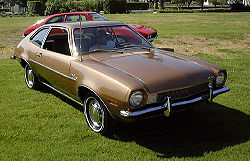This coming Tuesday afternoon, the Florida Senate Judiciary Committee chaired by Senator Anitere Flores will take up an anti-consumer bill involving automobile safety. This bill is being spearheaded by Ford Motor Company and if passed, will have huge consequences for consumers who are maimed and killed by defective cars.
A little background… “crashworthiness” is the idea that a car company has a duty to make a car that will give reasonable protection for consumers who are involved in a car crash. This is basic stuff, right? Cars should have seat belts that work, airbags that perform as designed, gas tanks that don’t explode in minor crashes, etc… However, cars are NOT always crashworthy. Consumer attorneys for years have brought cases against car manufacturers for failing to make their cars crashworthy resulting in families being killed, burned or crippled. This is well documented and has happened thousands and thousands of times.
A good example that goes back more than 30 years is the Ford Pinto. Ford made the Pinto with a poorly designed gas tank that would explode into flames if it was tapped in the rear by another vehicle at low speed. GM had a similar gas tank issue with certain pick up trucks. Some of the most famous ‘smoking gun’ corporate documents came to the public’s attention as a result of some of this litigation. These documents showed manufacturers have allowed bean counters to engage in decisions about whether to recall a known safety problem by looking at whether it would be cheaper to do the recall or just settle any lawsuits that are brought as a result of the problem. Remember the movie Fight Club? Ed Norton played the lead role in that movie, and it was his character’s job to do this kind of dirty work for some un-named car company. We don’t like to think about it but we know it happens.
There are legions of other types of well documented examples of cases where manufacturers have made defective cars that were not crashworthy: exploding gas tanks, SUV rollover roof crush cases, seat belt failures, airbag failures, etc… Most of the times when consumers bring claims against car companies over these issues, the injuries are either fatal or catastrophic. Here is a link to a video we did about one of our little clients who was catastrophically brain injured in a crashworthiness case involving a seat back that broke during an otherwise survivable rear-end collision. http://www.youtube.com/watch?v=wNcMCOdat9w. Our four year old client would have walked away but-for the failure of the seat back.
The bill being taken up for a vote this coming Tuesday afternoon by Senator Flores’ Committee will dramatically change the playing field for consumers in these kinds of cases. Several years ago in the D’Amario v. Ford decision, the Florida Supreme Court ruled that in a crashworthiness case, the jury must decide whether the car company is at fault without regard to the cause of the accident itself. Ford and other auto makers didn’t like this decision because they wanted to muddy the issue of crashworthiness for juries by asking them to also consider the fault of the person who caused the crash. For example, in the Pinto case, Ford would like to have the jury consider the fault of the driver who bumped into the Pinto and argue that they should be let off the hook because it’s the other driver’s fault, not theirs. The Court in D’Amario ruled that this was logically inconsistent because, in essence, the fault of the driver that bumped into the Pinto was a separate issue from Ford’s duty to make a gas tank that won’t explode in a fender bender because the Pinto occupants would not have been injured if the gas tank had not exploded.
For example, in the case involving Alyssa that’s discussed in the YouTube video I linked to above, if the proposed bill was law, the car company would have tried to blame the drunk driver that rear-ended Alyssa’s family car. Even though Alyssa would have walked away from the crash had her grandfather’s seat back not failed and slammed into her face causing her brain injury. And again, even though the Alyssa would have otherwise been injured in the crash but for the seatback failure, the Bill being taken up Tuesday would put the drunk driver on the verdict along with the car company.
The net effect? Car companies will get off the hook in cases like those involving Alyssa. Florida families and the State itself will get stuck with paying for her medical bills and future care. Out of state and foreign car companies will escape financial responsibility. And without financial motivation to make safe cars, cars will be more dangerous. And Florida families will suffer the consequences.


